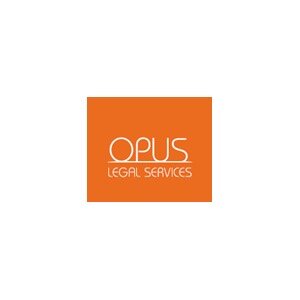Best Energy, Environment & ESG Lawyers in Iceland
Share your needs with us, get contacted by law firms.
Free. Takes 2 min.
Or refine your search by selecting a city:
List of the best lawyers in Iceland
About Energy, Environment & ESG Law in Iceland
Energy, Environment, and ESG (Environmental, Social, and Governance) law in Iceland is a rapidly evolving field influenced by the country's abundant natural resources and its commitment to sustainability. Iceland is renowned for its clean energy initiatives, with almost all electricity production coming from renewable sources like hydropower and geothermal energy. Environmental protection has long been a priority, with laws in place to safeguard the unique landscapes, wildlife, and ecosystems. ESG standards are steadily gaining importance as businesses and investors recognize the value of responsible environmental practices, social responsibility, and strong governance. The combined focus on energy, environment, and ESG makes the legal landscape both comprehensive and dynamic.
Why You May Need a Lawyer
Legal expertise is crucial when navigating the complex regulations related to energy, environment, and ESG in Iceland. Whether you are an individual, business owner, investor, or part of a non-profit, several situations often require legal help, such as:
- Securing permits and licenses for energy production or infrastructure projects
- Ensuring compliance with environmental regulations and standards
- Dealing with property and land use issues, especially in protected or sensitive areas
- Managing disputes related to environmental damages or pollution
- Incorporating ESG criteria into corporate governance and reporting
- Participating in public consultations or objecting to planned projects
- Advising on environmental liabilities in real estate deals
- Representing individuals and organizations in enforcement actions or litigation
Local Laws Overview
Key aspects of Icelandic law relating to energy, environment, and ESG include:
- The National Energy Law, which regulates the exploitation of Iceland’s energy resources, notably geothermal and hydropower.
- The Environmental Protection Act, setting out requirements for environmental impact assessments, permits, pollution control, and protected areas.
- Strict land use planning regulations to protect sensitive and unique landscapes, including highlands and nature reserves.
- Waste management and recycling laws to minimize pollution and promote circular economy principles.
- Climate policy frameworks aligned with the Paris Agreement and Iceland’s ambitious carbon neutrality goals.
- Corporate ESG disclosure requirements driven by EU and EEA obligations, affecting listed companies and financial institutions.
- Provisions for public participation and access to justice in environmental matters, in accordance with the Aarhus Convention.
Frequently Asked Questions
What types of renewable energy are most common in Iceland?
Geothermal and hydropower are the two most widespread renewable energy sources in Iceland, accounting for almost all electricity production.
Do I need permits to build or operate an energy project in Iceland?
Yes, permits are required for construction, operation, and often for environmental impact assessments. The process is regulated by national and municipal authorities.
What role do environmental impact assessments play in Iceland?
Environmental impact assessments are essential for large-scale projects. They evaluate potential consequences for nature, wildlife, and communities, and are required before permits can be issued.
Are there specific requirements for ESG reporting in Iceland?
ESG reporting requirements are becoming more common, especially for listed companies and financial institutions, in line with EU and EEA regulations.
How are protected areas managed in Iceland?
Protected areas are managed by The Environment Agency of Iceland, with strict regulations governing land use, tourism, and development to conserve biodiversity and natural beauty.
What happens if an environmental law is breached?
Violations can result in administrative fines, criminal prosecution, mandatory remediation of damages, or revocation of permits, depending on severity.
Is public participation possible in environmental decision-making?
Yes, the public has the right to participate in planning processes, submit comments on proposed projects, and appeal decisions.
Can international investors participate in Icelandic energy projects?
International investment is possible, but subject to regulations on land use, environmental protection, and sometimes foreign ownership restrictions.
What support exists for transitioning to sustainable business practices?
The government and various organizations offer grants, incentives, and advisory services to businesses aiming to improve their energy efficiency, reduce emissions, or enhance their ESG profiles.
How can individuals or communities object to an energy or environmental project?
Objections can be filed during environmental impact assessment consultations or by appealing administrative decisions through the appropriate legal channels.
Additional Resources
For more information, consider contacting or researching the following:
- The Environment Agency of Iceland - regulatory body for environmental protection and permits
- National Energy Authority - oversees energy resources and regulation
- Ministry for the Environment, Energy and Climate - government policy and legal frameworks
- Icelandic Innovation Center - support for sustainable energy and environmental projects
- Icelandic Bar Association - guidance on finding specialized legal professionals
Next Steps
If you believe you need legal assistance in the fields of Energy, Environment, or ESG in Iceland, start by clarifying your situation and objectives. Collect all relevant documents, permits, and communications. Consult a lawyer who specializes in this area for an initial assessment. A legal professional will help you understand your rights, obligations, and the best course of action. Be prepared to discuss your project or issue in detail and ask about the potential costs, timelines, and outcomes before proceeding further.
Lawzana helps you find the best lawyers and law firms in Iceland through a curated and pre-screened list of qualified legal professionals. Our platform offers rankings and detailed profiles of attorneys and law firms, allowing you to compare based on practice areas, including Energy, Environment & ESG, experience, and client feedback.
Each profile includes a description of the firm's areas of practice, client reviews, team members and partners, year of establishment, spoken languages, office locations, contact information, social media presence, and any published articles or resources. Most firms on our platform speak English and are experienced in both local and international legal matters.
Get a quote from top-rated law firms in Iceland — quickly, securely, and without unnecessary hassle.
Disclaimer:
The information provided on this page is for general informational purposes only and does not constitute legal advice. While we strive to ensure the accuracy and relevance of the content, legal information may change over time, and interpretations of the law can vary. You should always consult with a qualified legal professional for advice specific to your situation.
We disclaim all liability for actions taken or not taken based on the content of this page. If you believe any information is incorrect or outdated, please contact us, and we will review and update it where appropriate.
Browse energy, environment & esg law firms by service in Iceland
Iceland Attorneys in related practice areas.
Browse energy, environment & esg law firms by city in Iceland
Refine your search by selecting a city.
















